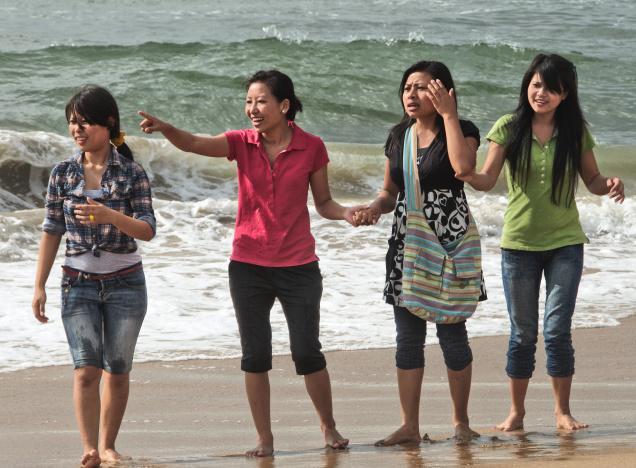Ahead of the race
The Hindu – June 08, 2013
Despite a survey that labels us racist, we haven’t fared too badly as a ‘divided society’.
The Washington Post had recently compiled an elaborate map on the levels of racial intolerance among 82 countries around the world. India was one of the top three racially intolerant countries in the infographic provided by columnist Max Fischer, based on the data culled by the World Values survey. The racially tolerant countries included the US, the UK, Canada, Australia, Scandinavia, and much of Latin America. These results have thrown up some questions that need to be addressed. One, how validated could these surveys be considering the complexity of the subject? Second, are we actually such a racist nation?
The data provided by the World Values survey is based on the questions that they had asked people across the world with regard to their neighbours. Across 80 countries, participants were asked to identify people they “would not want as neighbours” and the answers included multiple options, including “people from another race”. Based on the answers to these basic questions, the survey had produced results which were later used as a “benchmark” for defining racism in countries across the world. It baffles one that such a complex subject is being trivialised by a mere question-and-answer pattern and extrapolated into rankings which are trivial at best.
First, in a complex country such as India, how many people would even understand the idea of race defined from a Western viewpoint? We are a caste-driven society and the idea of race per se is not even relevant with the majority of population.
Second, the co-relation between neighbours and being racist is itself intrinsically flawed. For example, are all those living in Chinatowns in the various cities in the US, considered racist just because they find it convenient living with one another? In addition, how would the findings of a small random size provide a broader trend among a billion people? Even the Indian census, which is the most comprehensive data-gathering exercise in the world, takes around five years to provide data that is broadly an indicator and nothing more than that. As such, it is not appropriate to extrapolate such data and provide generic trends that do not reflect the complexity of the subject and the diversity of the people of India.
Moving beyond the survey, the moot point is the question of whether we, as a society, are racist in nature. There is no substantial research data that quantifies this nature that exists predominantly in our society, more so than other countries. Unlike the West, which is divided on race lines, our society is divided more on caste lines due to the inheritance of a system that is thousands of years old. Discrimination is prevalent in any society and civilization, whether this discrimination mounts to racial intolerance is a point of question. Indians, by and large, look at anyone with a different skin colour, the Whites and the Blacks, with a sense of surprise and amusement rather than with the intent to demonise them.
This society has embraced people more than any other human society on earth. Be it the British, be it the French or the Jews, we have opened our arms to everyone during various stages in history. This is not to suggest that we are holier-than-thou, it is just that we are not as bad as what we have been made out to be by the rankings which are broad-sweeping in nature, especially in the context of racism.
One of the distinct examples of racism in India has been the way the North-easterners are treated in the rest of the country. This discrimination is largely to do with colour and is present in various degrees across the country. However, there are some positives also. Most of the North-easterners are by and large safe, and feel safe, in the Southern parts of the country. Perceptions seem to suggest that acts of racial intolerance are restricted to not the majority, but a lofty minority in society. The discrimination against the dalits over the centuries is something that we as a country need to be ashamed about. It is a baggage that we have inherited from the previous generations and there is progress in eliminating such racial discrimination.
These two major types of racism in India are something that we need to get over by creating a greater awareness in society, especially rural India. However, in what way would the current state of India, even with the faults mentioned above, make it to the top of the list in the least racially tolerant countries in the world? Does this equate or supersede the slavery that Blacks were subject to in the West, especially in the US which ranks as a very tolerant nation? Or could any type of ranking equate or “rank” such acts?
In today’s context, there is a ranking of almost anything without considering the complexity and depth of the issue. Rankings do not reflect the ground realities that are present, they are the subjective notion of a few who view countries such as India through a narrow prism of things. India is the largest destination for Tibetans seeking refuge every year and also home to thousands of Africans, Chinese and Jews. To label this country as the most racist is short-sighted to say the least.
This article can also be viewed at http://www.thehindu.com/features/magazine/ahead-of-the-race/article4791456.ece

